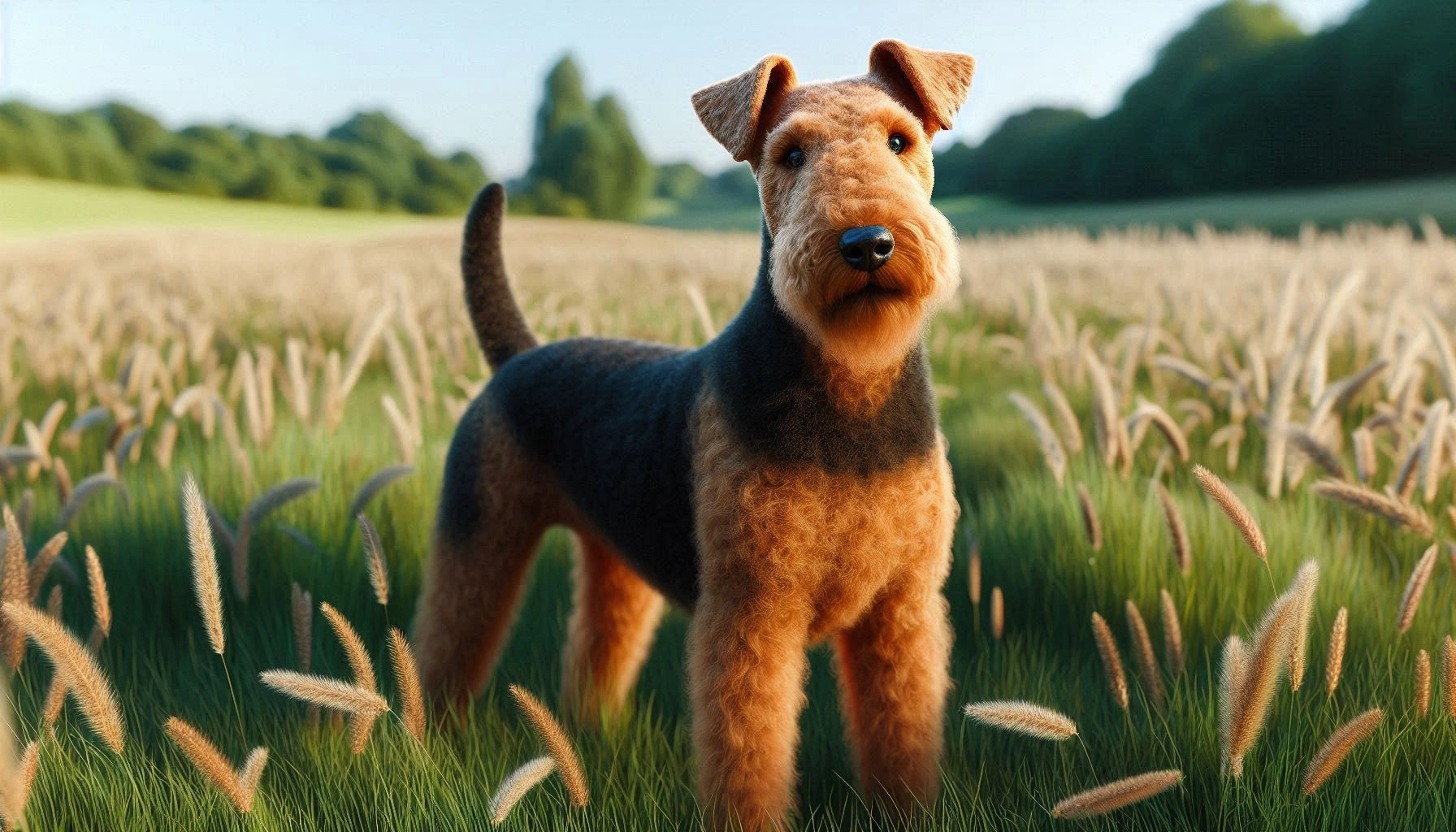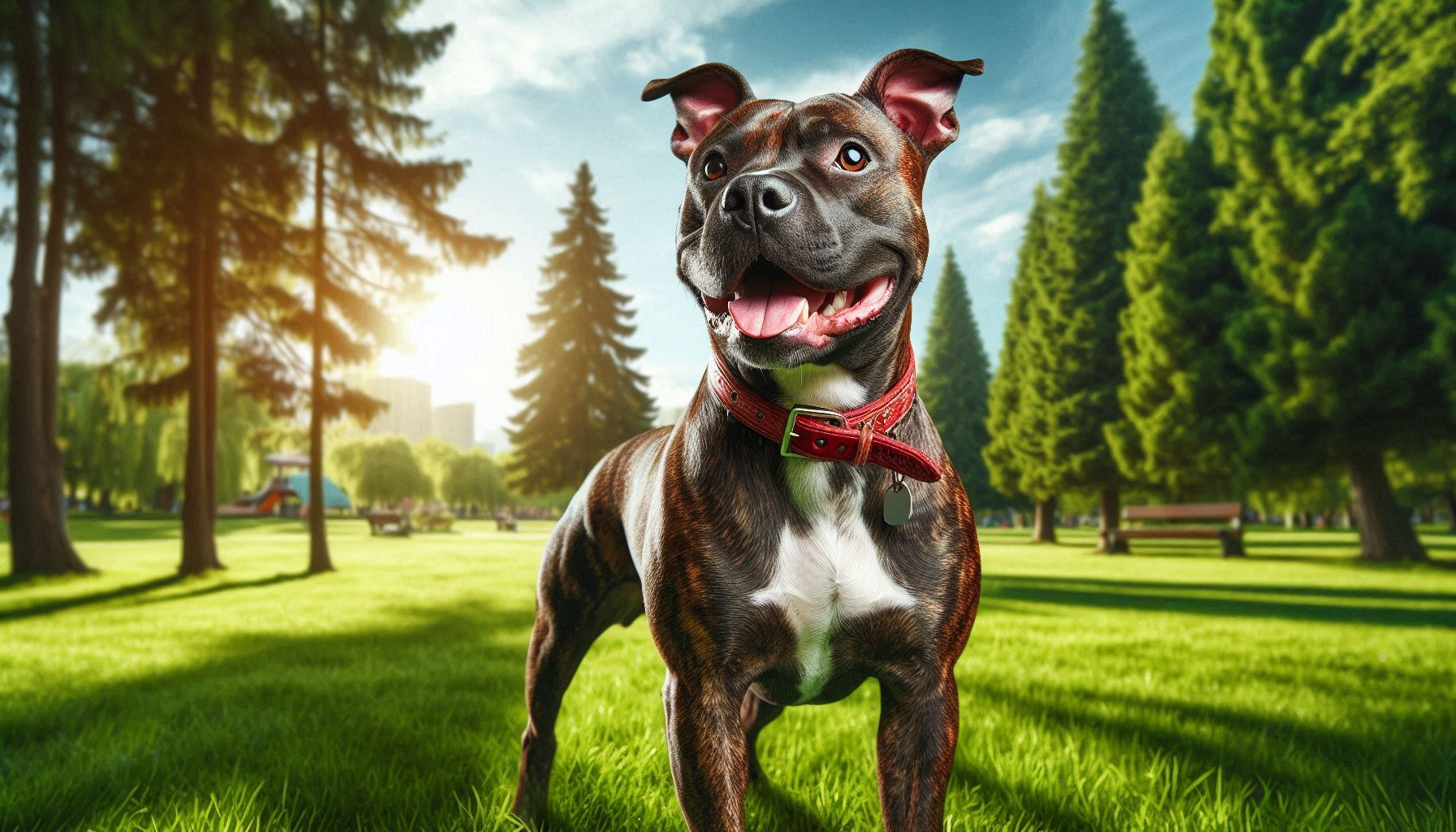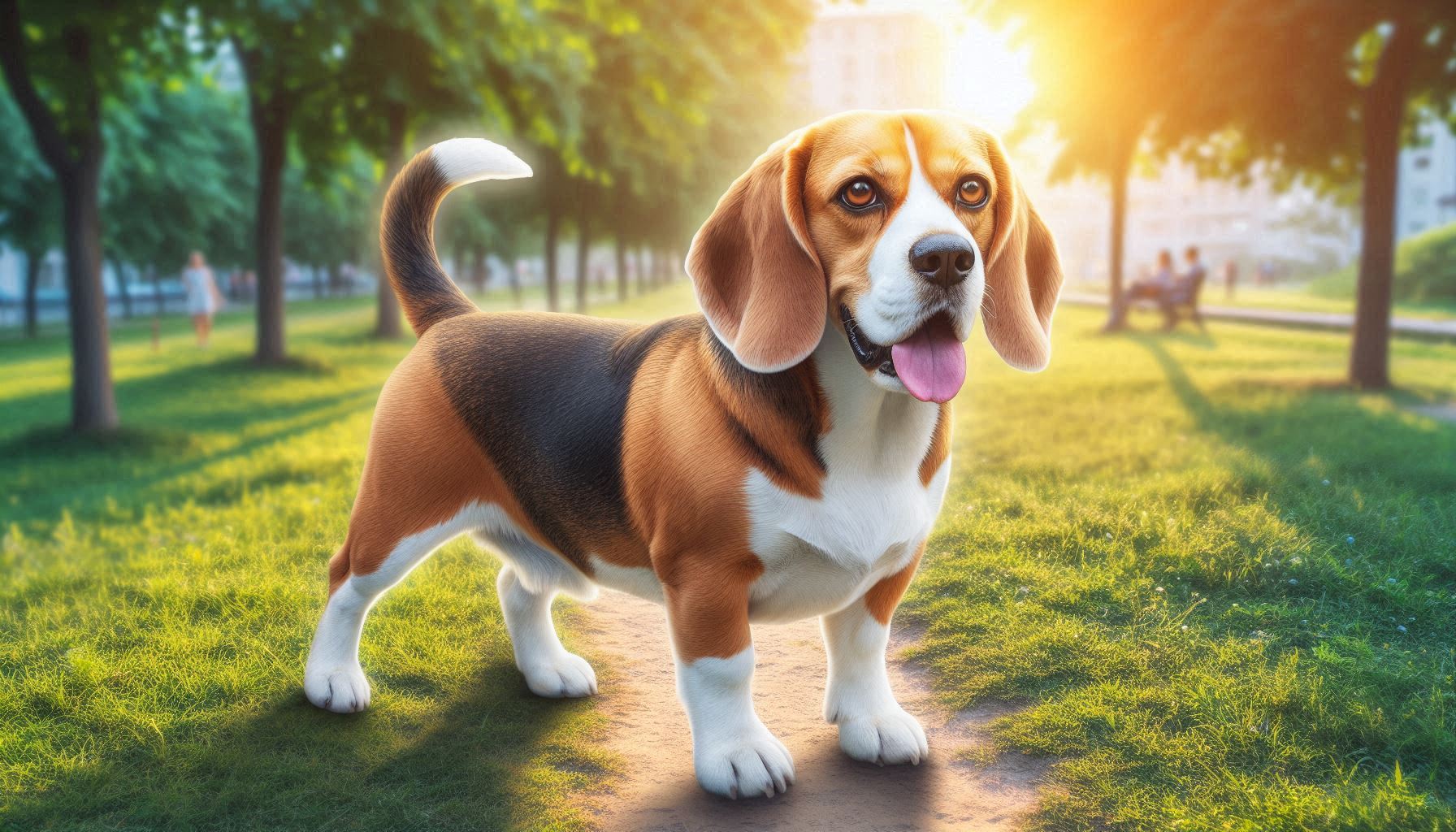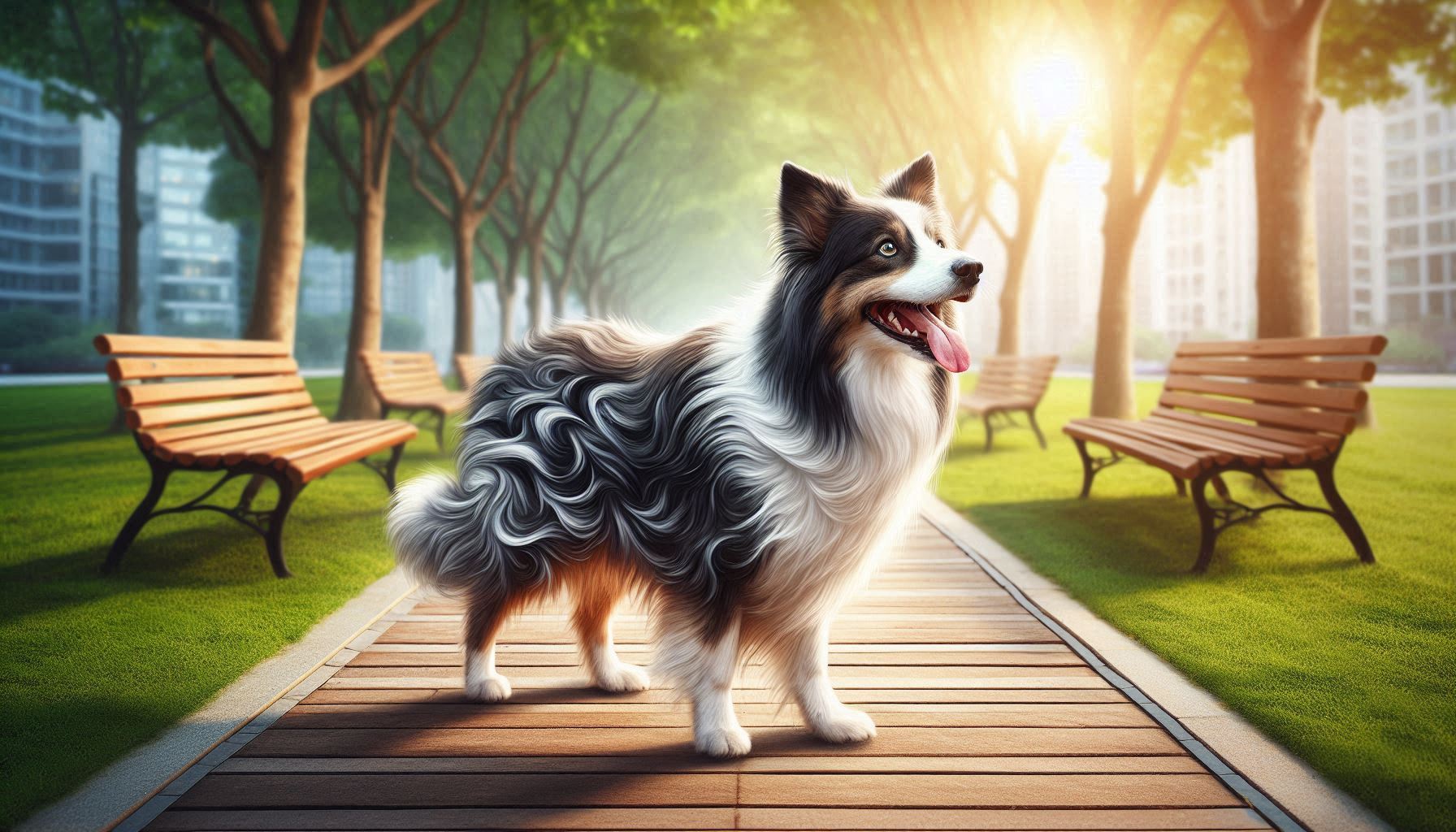Table of Contents
English Bulldog Breed
The English Bulldog, affectionately known as the Bulldog, is one of the most recognizable and beloved dog breeds in the world. With its distinctive wrinkled face, muscular build, and charmingly stubborn personality, the English Bulldog has won the hearts of dog lovers everywhere. This breed is known for its loyalty, gentle disposition, and unique appearance, making it a popular choice for families and individuals alike. Whether you’re drawn to their history as courageous companions or their status as gentle family pets, the English Bulldog offers a perfect blend of strength and affection.
English Bulldog Dog History and Origin

The history of the English Bulldog is as rich and robust as the breed itself. Originating in England, the Bulldog’s ancestors were bred for the brutal sport of bull baiting during the 13th century. These dogs were selected for their courage, tenacity, and ability to pin down large bulls by the nose, an activity that was both dangerous and cruel. Despite this violent past, the English Bulldog we know today is far removed from its fierce forebears.
Transition from Fighter to Companion
With the outlawing of bull-baiting in 1835, the Bulldog’s role in society began to shift. Dedicated breeders worked to preserve the breed, emphasizing its gentler traits while maintaining its distinctive physical characteristics. Over time, the Bulldog evolved from a ferocious fighter into a companion dog, known for its loyalty and affectionate nature. The breed’s transformation is a testament to careful breeding and the dedication of those who sought to redefine the Bulldog’s image.
Recognition and Popularity
The English Bulldog was officially recognized by the American Kennel Club (AKC) in 1886, solidifying its status as a beloved breed. Today, Bulldogs are popular worldwide, not only for their unique appearance but also for their loving and dependable nature. They have become symbols of strength, resilience, and determination traits that are still evident in their modern descendants.
English Bulldog Dog Physical Characteristics

The English Bulldog is a medium-sized breed, instantly recognizable by its unique and muscular physique. Despite their somewhat intimidating appearance, Bulldogs are known for their gentle and affectionate nature.
Size and Build
- Height: English Bulldogs typically stand about 14 to 15 inches tall at the shoulder.
- Weight: Males generally weigh between 50 to 55 pounds, while females weigh slightly less, around 40 to 50 pounds.
- Build: The Bulldog’s body is stocky and muscular, with broad shoulders and a wide chest. They have a characteristic low slung gait that adds to their distinctive look.
Coat and Colors
- Coat Type: Bulldogs have a short, smooth coat that lies close to the body. The coat is easy to care for, but their skin folds require regular cleaning to prevent irritation and infection.
- Colors: The breed comes in a variety of colors, including brindle, white, red, fawn, and piebald. Some Bulldogs have unique markings, adding to their individual charm.
Distinctive Features
- Wrinkled Face: One of the most notable features of the English Bulldog is its wrinkled face and pushed-in nose. These wrinkles, particularly around the eyes and muzzle, give the Bulldog its characteristic expression.
- Undershot Jaw: Bulldogs have a distinctive undershot jaw, meaning their lower jaw protrudes beyond the upper jaw, giving them a powerful and determined look.
- Tail: Bulldogs often have a short, straight, or corkscrew tail, which is another distinctive feature of the breed.
Temperament and Personality
English Bulldogs are known for their calm and friendly demeanor. Despite their tough appearance, they are gentle, affectionate, and enjoy being close to their families. Here’s a closer look at their temperament:
Loyalty and Affection
- Loyal Companions: Bulldogs are fiercely loyal to their families and form strong bonds with their owners. They are known to be particularly attached to one person in the household, often following them around and seeking their attention.
- Gentle Nature: English Bulldogs are gentle and patient, making them excellent companions for children. They have a tolerant and easygoing nature, which is why they are often described as “nanny dogs.”
Playful Yet Laid-Back
- Playful: While they enjoy playtime, Bulldogs are not overly energetic. They love to play with their toys and engage in short bursts of activity, but they are also content to relax on the couch.
- Stubborn Streak: Bulldogs can be a bit stubborn, a trait inherited from their history as determined bull-baiters. However, this stubbornness is balanced by their deep desire to please their owners, making them trainable with patience and consistency.
Social Interactions
- With Children: Bulldogs are known for their gentle and protective nature around children. They are patient and tolerant, making them excellent playmates for kids.
- With Other Pets: Generally, Bulldogs get along well with other dogs and pets, especially if they are socialized from a young age. They tend to be more laid back than aggressive, though they can be territorial at times.
Health and Lifespan
English Bulldogs have a lifespan of about 8 to 10 years, which is relatively short compared to other breeds. They are prone to several health issues, largely due to their unique physical structure.
Common Health Issues
- Brachycephalic Syndrome: Due to their short, flat noses, Bulldogs can suffer from breathing difficulties, especially in hot or humid weather. It’s important to keep them cool and avoid excessive exercise in warm conditions.
- Hip Dysplasia: This breed is prone to hip dysplasia, a condition where the hip joint doesn’t fit together properly, causing pain and mobility issues.
- Skin Problems: Bulldogs are prone to skin infections, particularly in the folds of their skin. Regular cleaning of these areas is essential to prevent irritation and infections.
- Heart Issues: Bulldogs can also be susceptible to heart problems, such as congenital heart disease, which requires monitoring by a veterinarian.
Keeping Your Bulldog Healthy
To keep your English Bulldog healthy regular veterinary check-ups are essential. Maintaining a healthy weight is crucial, as obesity can exacerbate many of the breed’s health problems. Provide a balanced diet, regular (but moderate) exercise, and ensure they have a cool and comfortable environment, particularly during hot weather.
Care and Grooming
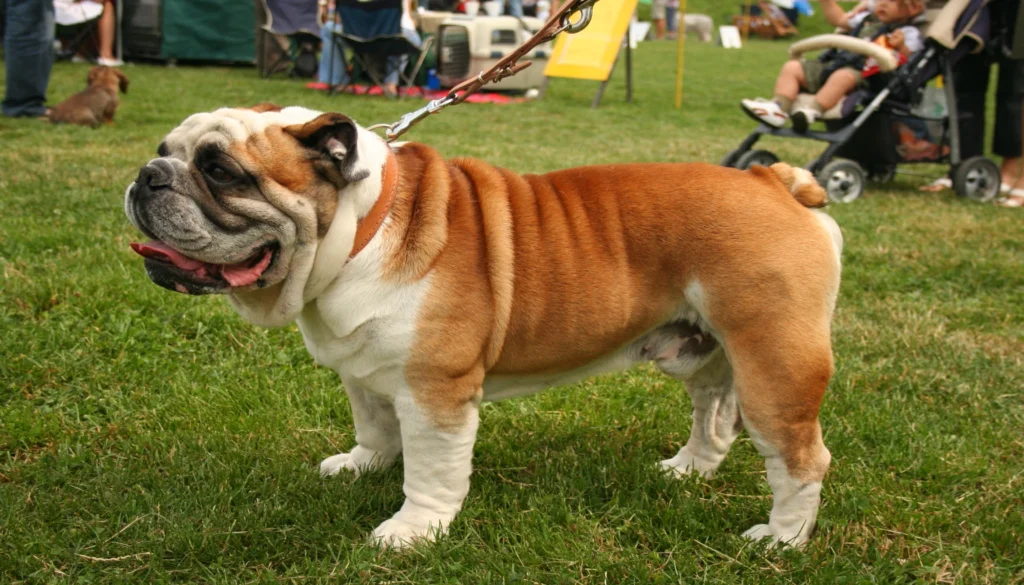
English Bulldogs require some specific care and grooming to keep them healthy and looking their best. Despite their low-maintenance coat, they have particular needs that owners should be aware of.
Grooming Needs
- Brushing: Bulldogs have a short coat that doesn’t shed excessively, but regular brushing (once or twice a week) will help keep their coat healthy and shiny.
- Cleaning Folds: The skin folds around a Bulldog’s face need to be cleaned regularly to prevent moisture buildup and bacterial infections. Use a damp cloth to gently clean these areas, followed by drying thoroughly.
- Bathing: Bulldogs don’t require frequent baths every few months should suffice unless they get particularly dirty. Use a gentle dog shampoo to avoid skin irritation.
- Nail Trimming: Regular nail trimming is necessary to prevent overgrowth, which can be uncomfortable for the dog. Their nails should be trimmed every few weeks.
Exercise Requirements
Bulldogs are not highly energetic dogs, but they still need regular exercise to stay healthy. Short, daily walks and playtime are usually sufficient. It’s important to avoid over exercising, especially in hot weather, as Bulldogs are prone to overheating due to their brachycephalic nature.
Dietary Recommendations
A balanced diet is crucial for maintaining your Bulldog’s health. Choose a high quality dog food that provides the necessary nutrients and monitor their food intake to prevent obesity. Bulldogs love to eat, so portion control is key. Treats should be given in moderation.
Training and Socialization
Training an English Bulldog can be a rewarding experience, but it may require patience due to their stubborn nature. However, with the right approach, Bulldogs can be well trained and obedient companions.
Training Tips
- Positive Reinforcement: Bulldogs respond best to positive reinforcement, such as treats, praise, and affection. Harsh methods can lead to resistance and stress.
- Consistency: Be consistent with commands and routines. Bulldogs need clear guidance and repetition to understand what is expected of them.
- Patience: Given their stubborn streak, training a Bulldog requires patience. Short, engaging training sessions are more effective than long, repetitive ones.
Socialization
- Early Exposure: Socializing your Bulldog from a young age is important. Introduce them to various environments, people, and other animals to help them become well-rounded adults.
- Supervised Interactions: Monitor interactions with other dogs, especially unfamiliar ones, to ensure positive experiences. Bulldogs are generally good-natured but can be territorial if not properly socialized.
Suitability as a Family Pet

English Bulldogs are excellent family pets, known for their affectionate and protective nature. They thrive in a loving environment where they can be close to their family members.
Living Environment
- Apartment Friendly: Bulldogs are well-suited for apartment living due to their moderate energy levels and relatively low exercise needs. They are content to relax indoors, making them ideal for smaller living spaces.
- Family Dynamics: Bulldogs are great with children and can adapt well to various family structures. They are patient, tolerant, and protective, making them excellent companions for families with young kids.
Energy Levels
Bulldogs have moderate energy levels. They enjoy playtime but are equally happy to lounge around the house. Their calm demeanor makes them a good fit for families who prefer a more laid-back dog that doesn’t require extensive exercise.
Fun Facts and Trivia
- National Symbol: The English Bulldog is often used as a symbol of determination and courage. It has been associated with England and is even the mascot of the United States Marine Corps.
- Celebrity Bulldogs: Several celebrities are known for their love of Bulldogs, including Adam Sandler, who often features his Bulldogs in his films, and singer Pink, who is frequently seen with her Bulldog.
- World Record Holder: Otto, an English Bulldog, holds the Guinness World Record for the longest human tunnel traveled through by a skateboarding dog. This feat showcases the Bulldog’s surprising agility and balance.
Dog Breeds Similar to English Bulldog
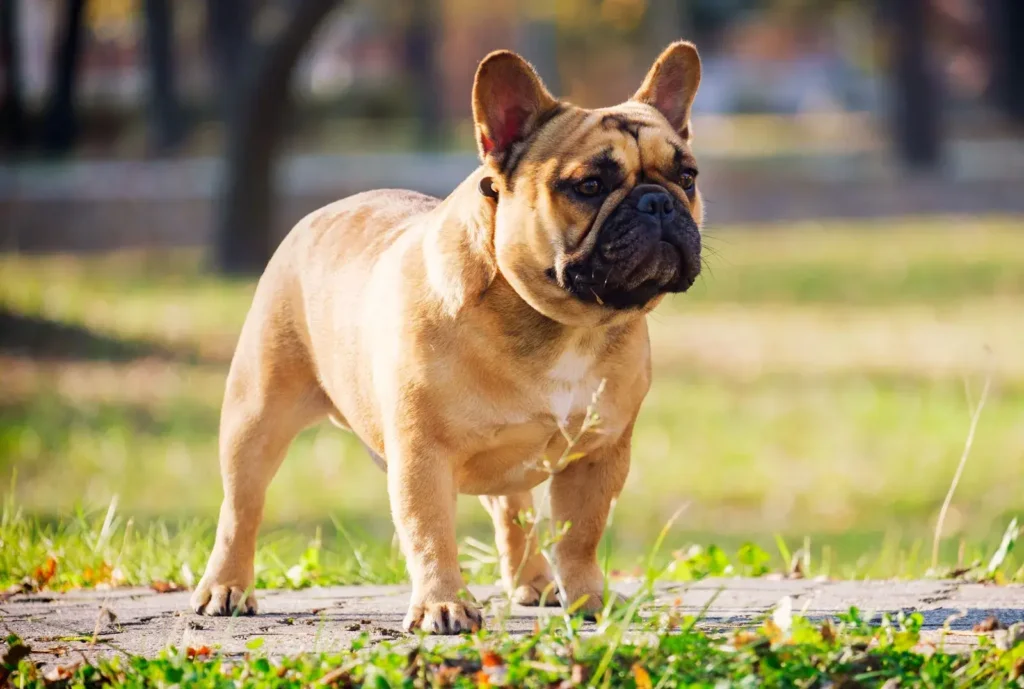
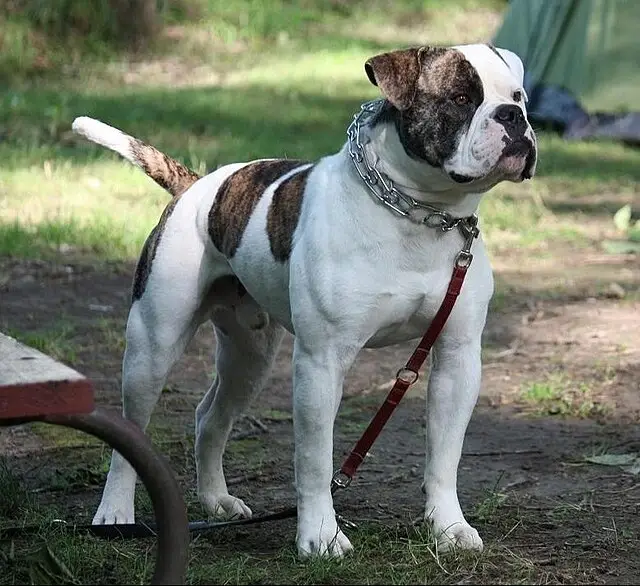
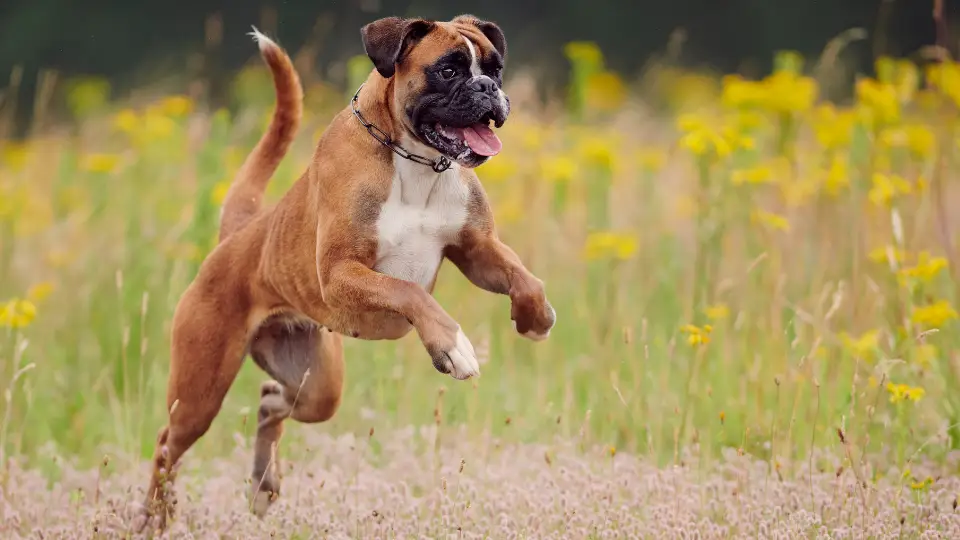
If you love the English Bulldog, you might also be interested in these similar breeds:
- French Bulldog: A close cousin to the English Bulldog, the French Bulldog is smaller in size but shares many of the same characteristics, such as a stocky build, wrinkled face, and loving personality. They are also popular for their charming bat-like ears.
- American Bulldog: Larger and more athletic than the English Bulldog, the American Bulldog is known for its strength, loyalty, and protective nature. While they are more energetic, they still share the Bulldog’s affectionate and family-friendly temperament.
- Boxer: Boxers are medium to large dogs known for their playful and energetic nature. They have a muscular build and are very loyal to their families. Like Bulldogs, they are great with children and have a protective streak.
Conclusion
The English Bulldog is a breed that offers a unique blend of history strength and affection. With their distinctive appearance, loyal temperament, and gentle nature, they make wonderful companions for individuals and families alike. While they require special care due to their health needs, the love and loyalty they offer in return make them a truly special breed.
If you’re considering adding an English Bulldog to your family, it’s important to understand their specific needs and characteristics. With the right care and attention, a Bulldog can be a loving and devoted companion for many years.
FAQ
Is the English Bulldog a dangerous dog?
No, the English Bulldog is not a dangerous dog. They are known for their gentle and affectionate nature. However, like all dogs, proper socialization and training are important to ensure they behave well around people and other animals.
Is the English Bulldog a good guard dog?
While English Bulldogs are protective of their families and will alert you to strangers, they are not typically considered guard dogs due to their friendly and non aggressive nature. They make excellent watchdogs but are more likely to greet intruders with curiosity than aggression.
